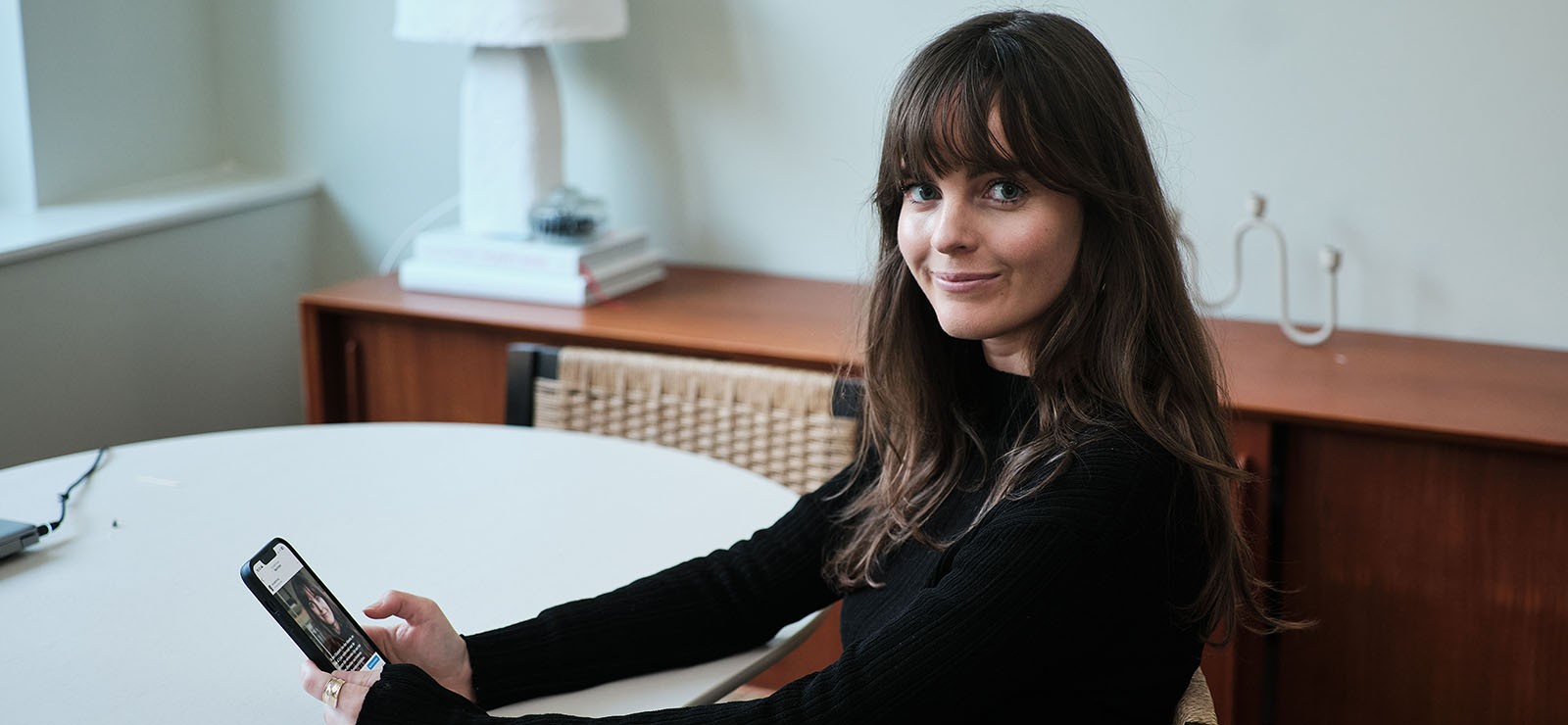Adorable baby photos, your toddler's first day of school or this summer’s holiday pictures with the children. Parents love to share photos of their children. But sharing those photos online is not without risk. Doctoral researcher Elisabeth Van den Abeele offers tips for parents on how best to go about it.
‘Sharenting’, or the online sharing of photos and videos of children by their parents, is commonplace these days. The term is a combination of ‘sharing’ and ‘parenting’. "Parents share photos of their children because they are proud of their child, seek support from other parents and/or want to capture memories", Elisabeth explains.
I share, therefore I am
“As a parent, your child becomes part of your identity. Hiding this part of your life can feel wrong. And while posting your child online doesn’t make you a bad parent, we don’t give nearly enough thought to the risks.”
That is what Elisabeth found during her doctoral study on the online portrayal of children within influencer activities. “18 of the 19 underage influencers I spoke to during my research had already come into contact with paedophiles. It’s a result that hits home.”
Mindful sharenting
“Fortunately, parents are increasingly careful about what children's photos they share, thereby engaging in 'mindful sharenting’. They protect their child's privacy and give it the opportunity to create its own online identity."
During her research, one respondent described the online portrayal of children in an influencer context as follows: "In a few years we'll look back on it the way we feel about smoking in restaurants now: hard to imagine it was ever allowed."
Elisabeth thinks it won’t be much of an issue for parents who are not influencers, but she feels a conscious approach to sharing children's photos is definitely a positive evolution.

Elisabeth Van den Abeele: “18 van de 19 minderjarige influencers die ik sprak tijdens mijn onderzoek, kwamen al in contact met pedofielen. Dat is een resultaat dat binnenkomt.”
Five tips that can help you share more consciously
- Always ask yourself: what is the added value to my child if I post this picture?
- Can the online photo be taken out of context and sexualised in any way? Think poses or props, or children who are (semi-)naked.
- Can the post harm your child, now or in the future? Photos that parents find cute may be perceived as embarrassing or humiliating by their children.
- Talk to your child about the photos you want to post and ask their permission. Children are often able to make a choice and assess what they want to show online or not.
- Depict your child as anonymously or unrecognisable as possible. You can do this in several ways:
- Disguise your child with a hat, a cap or sunglasses
- Photograph your child from a distance.
- Only show part of your child, such as a hand.
- Only show your child’s back.
- Edit the photo with a sticker or emoji on the face.
Want more tips on portraying your child on social media? Visit the platform www.magditonline.be, an initiative of the Center for Persuasive Communication within the Department of Communication Sciences at Ghent University.
Read also
Six tips for healthy screen time (for children & adolescents)
Our children are growing up in a world filled with screens. How much should we worry about this? Professor Mariek Vanden Abeele (imec-mict-UGent) analyses the benefits and drawbacks of digital connectedness among young people, and tells us how we can ensure healthy screen time.
”There are countless ways to be a good family”
Broadening our view of the world is what Ann Buysse wants to achieve with her book 'Zoveel tussen ons’ (So much between us). She is a professor and dean of the Faculty of Psychology and Educational Sciences. "I have never been so unsure about anything before. Especially because it has not become a purely academic book. I also put a lot of myself into it."
Can you lie to children?
Children swallow a bunch of lies without realising it. Parents and educators often brush them off with a (half-)lie and as a society we’re no angels either with St Nicholas, Santa and the Easter Bunny. So is lying pedagogically acceptable? We asked professor of historic and general pedagogy Lieselot De Wilde of the Department of Social Work and Social Pedagogy.



